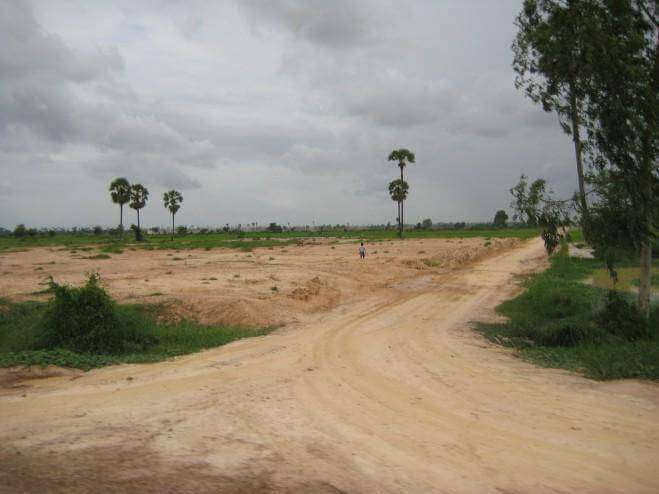
Getting to Know the Place
When you arrive to your temporary base, it can be quite exciting. But we nomads have to adapt fast, so after a few days we already feel more or less like we are home. However, we can easily fall into the trap of feeling like a “local” too fast without exploring the location’s sights and culture. In this article, we will discuss a few ways to push yourself into exploring the city you’re at so that once you leave, you will really feel like you have gotten to know the place you were at.
ONE OF THE MOST EFFECTIVE WAYS TO GET TO KNOW A PLACE IS TO DESIGNATE A SPECIFIC AMOUNT OF TIME TO TRAVELING IN WHICH YOU CHANGE YOUR MINDSET AND FOCUS ON HAVING FUN WHILE YOU EXPLORE YOUR SURROUNDINGS.
This is especially effective for nomads that are working, who are fixed in a daily routine and need to find a way to escape from it. The most recommended way to make this happen is to designate two days per week (usually the weekend) to ‘get away from it all’ and travel. In my experience, just these two days will replenish your energy for the rest of the week and make you not only more efficient but also happier while performing your daily routines of the weekdays. My basic rule is to push myself into a commitment of traveling during the weekend. Since my self-discipline suffers, I’ve found three different ways to enforce this commitment. These ways help me avoid weekends in which I do nothing and later feel bad when the weekend is over. Any one of these three will do to make you go through with your commitment.
- The first way : Check out
I force myself to check out of my accomodation (i.e. hostel) the day I want to travel. I simply pay in advance and then, magically, the motivation to travel elsewhere skyrockets the day I have to leave! - The second way: Buy a ticket
Once you’ve spent the money on a train or bus ticket, chances are you’re going to push yourself into making the journey even if you’re feeling a bit lazy by the time the weekend rolls around. Buying that ticket in advance, therefore, is a great way to push yourself into keeping your plans. - The third way: Committing to travel with someone else
Once you’ve made plans with friends or family, it’s hard to back out. If one of you starts to feel lazy, chances are the other will push you to follow through with the your promise.
YOU DON’T HAVE TO WAIT FOR THE WEEKEND TO HIT THE TOWN. THERE’S ALWAYS TIME TO DO SMALLER THINGS AROUND TOWN THAT YOU CAN COMMIT TO AND MAKE A ROUTINE OF. AND WITH TIME, YOU’LL FEEL MORE LIKE A LOCAL AND BE MORE KNOWLEDGEABLE ABOUT THE CITY’S SIGHTS.
- One way to do this is to walk as much as possible. I always try to walk around unfamiliar places in my spare time, or even just to any place I need to go, since walking really brings you into the reality of the place and gives you the chance to notice the smaller details. Walking provides to you better memory of the area reorient yourself with; you will feel much more comfortable in your location once you know your way around. As a bonus, you’ll be able to get to the places you want to get to without getting lost on the way (ordinarily wasting time doing so).
- Another way to do this is to use public transportation whenever you have some free time. Try taking a bus to the other side of town and pay close attention to the streets and major attractions; you’d be surprised at how valuable the memory of those streets can be to you in the future. I actually love to purchase a monthly pass (in big cities like Berlin or London), that allows me to travel extensively without thinking of the cost. Every day, I make a commitment to myself to arrive to a new station and walk from there to home and work. It’s a great place to know your location better.
- Using maps provides a fantastic way to orient yourself before you set out (or even on your way). Modern technology allows you to use a GPS while walking. The combination of seeing your surroundings while at the same time being aware of your location on a map can be quite helpful.
- We usually avoid saying yes to invitations or meetings if those are scheduled in unfamiliar places. Try to avoid asking to change the meeting place to somewhere you are familiar with (ex. city center). Instead, say yes to, and even be happy for, each opportunity to that comes your way. It is, however, important not to forget to take into consideration the extra time you’ll spend getting lost on the way (looking for the place).
- As we discussed in our article about getting to know locals, spending time with locals can be very beneficial. For instance, a local can take you to many different places you’d never go to on your own, allowing you to get a better feel for the area. They also probably know their way around better than you do (so there’s less of a chance of getting lost).
A very valuable way of getting to know a place is, in my experience, to make a list of places you’d like to explore and finding ways of getting there whenever you have free time. I divide my list of places into two categories. One consists of places that can be reached easily when I have only a small amount of free time and that can be easily combined with my daily activies. The second consists of places that are farther away and usually need a day or two to explore. I try to take note each time someone mentions to me a place that is worthwhile to visit, then I add it to my list and commit myself to venturing there over the weekend.
You never know when you’ll return to the place you’re currently at. Following the above mentioned steps will allow you to fully explore the area and get a feel for where you’re staying. That way, when you decide to finally leave, you will honestly be able to say to yourself that you really got to know it (it’s also fun to meet people that live there later on and be able to surprise them with your knowledge of their town).



Brilliant article. I find this to be very true what you say about designating a specific time to leave the country. When you know you are on a ‘deadline’ yowl will use every opportunity and make the most of your time to visit and explore rather than say “it would be good to do this one day”. I found that in the places I spent the less time, I usually explored the most and very fast too.